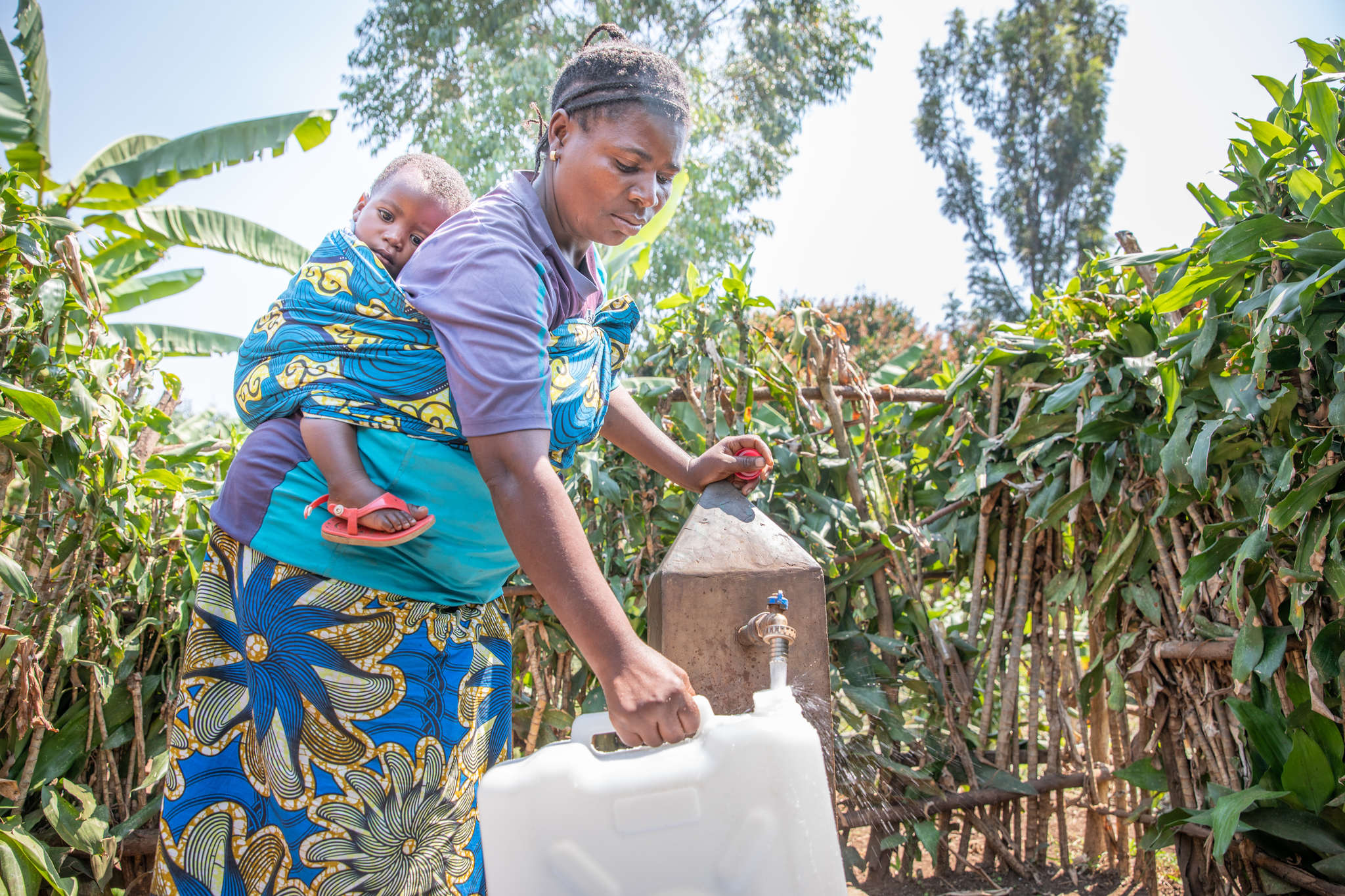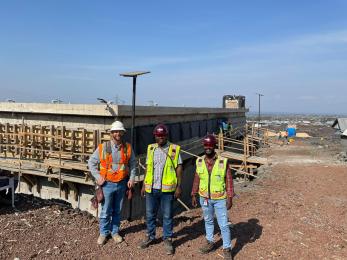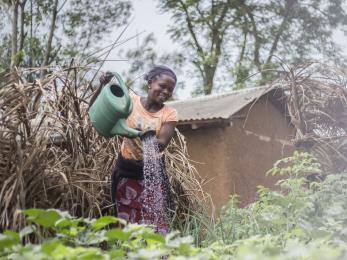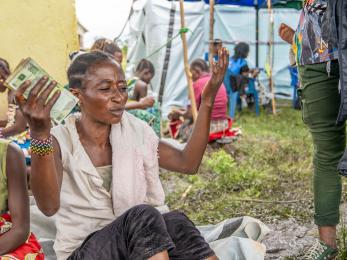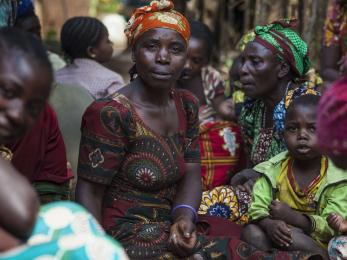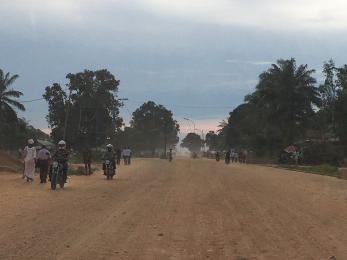Breadcrumb
Democratic Republic of Congo
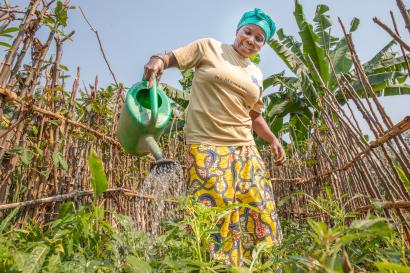
Since 2007, Mercy Corps has supported communities in Democratic Republic of Congo through improved access to clean water, increased livelihood opportunities, promoting good governance, and emergency support in the wake of natural disasters. In 2024, our work reached nearly 850,000 people across the country.
The context
With the second largest country and fourth highest population in Africa, the Democratic Republic of Congo (DRC) has experienced economic growth in recent years primarily driven by its natural resources. Despite its vast human and natural resources, the country struggles with challenges like ongoing conflicts, lack of infrastructure, and weak governance.
After two decades of ongoing conflict and insecurity, DRC has the highest number of displaced people in Africa with 6.4 million people who have fled their home within DRC and an additional nearly 525,000 people refugees and asylum-seekers in the country. Conflicts have forced households to be displaced serval times, pushing communities far from their hometowns for years. As a result, 27 million people are in need of humanitarian assistance in the country.
Escalation in conflicts has worsened food insecurity, pushing people out of their traditional rural farmlands, leaving behind their fields and harvests and into towns and cities seeking safety and livelihood opportunities. Additionally, lack of resources combined with damage from natural disasters has led to severe shortage of access to clean water. Extreme weather events have brought on disasters like floods, landslides, and volcanic disruptions—leading to more displacement, disruption to water infrastructure, and disease outbreaks like mpox.
Our impact
Mercy Corps provides immediate and long-term assistance to communities in DRC. Through partnerships with local governments and organisations, Mercy Corps supports communities as they build economically secure and climate-resilient futures. Our programmes make an impact across these areas:
Increasing access to clean water
Mercy Corps provides access to clean water and sanitation facilities to areas with large populations of people who have been displaced, as well as their host communities. With increased access to safe water, children are less likely to become sick from drinking contaminated water and improved hygiene is helping to prevent the spread of disease.
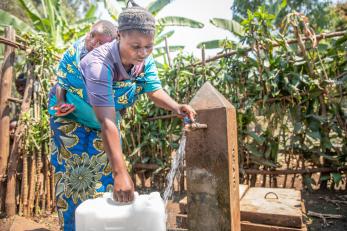
Through one of Mercy Corps’ largest infrastructure programmes, over a million people have access to drinking water in Goma, Nyiragongo, and Bukavu. By collaborating with the Congolese government, the private sector, and local communities, we have supported a more sustainable public water management system.
Supporting more sustainable livelihood opportunities
By partnering with public and private institutions, Mercy Corps supported participants in agricultural small businesses to strengthen their livelihoods and increase their incomes—including the interests and needs of women, youth, and people from underserved communities.
By supporting more opportunities for farming jobs and improving access to value chains, we simultaneously increase food production and help stabilise livelihoods by giving young people a sense of purpose and a stake in the future of their communities. Participants receive small business training, increased access to credit, and support for village savings and loans groups.
Delivering access to affordable and nutritious food
In areas such as South Kivu and Kasai provinces, we work with communities, local leaders, and governments to build longer-term food security and stability. Mercy Corps focus on protecting and improving the health of women and children by improving access to affordable and nutritious food; and encouraging best practises for breastfeeding, nutrition, and child caring.
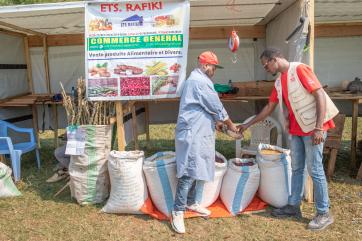
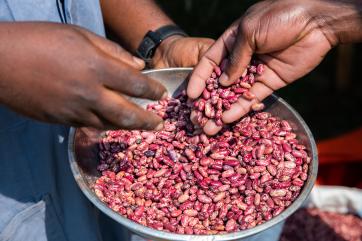
Using evidence-based approach, participants improved production of nutritious food through organisations supporting farmers and producers, diversifying household food and income opportunities through small-scale livestock farming and permagardens, and promoting more resilient agriculture design. Between 2022 and 2023, the prevalence of food insecurity has decreased by 16% in Kabare and Kalehe territories in South Kivu. Between 2014 and 2023, over 11,000 farmers in South Kivu produced $2.2 million of agricultural products, with an average of $173 per producer
Promoting peace and good governance
Mercy Corps collaborates with local government institutions and communities to build trust and better manage conflicts over natural resources and land. Our peacebuilding approach supports women and young people to be more proactive in decision-making for their households and communities. The programmes work to strengthen peace and stability in Eastern DRC by fostering trust between the state and society, building community resilience to conflict, and promoting positive messaging. This is achieved through conflict-sensitive interventions, training in local conflict management, improved accountability in security and justice, and socio-economic reintegration opportunities for people who were formerly involved in conflicts.
Since October 2018, community institutions supported by Mercy Corps in South Kivu, North Kivu, and Ituri have resolved more than 3,500 intra-community conflicts. Additionally, approximately 100 violent conflicts were mitigated due to early warning.
